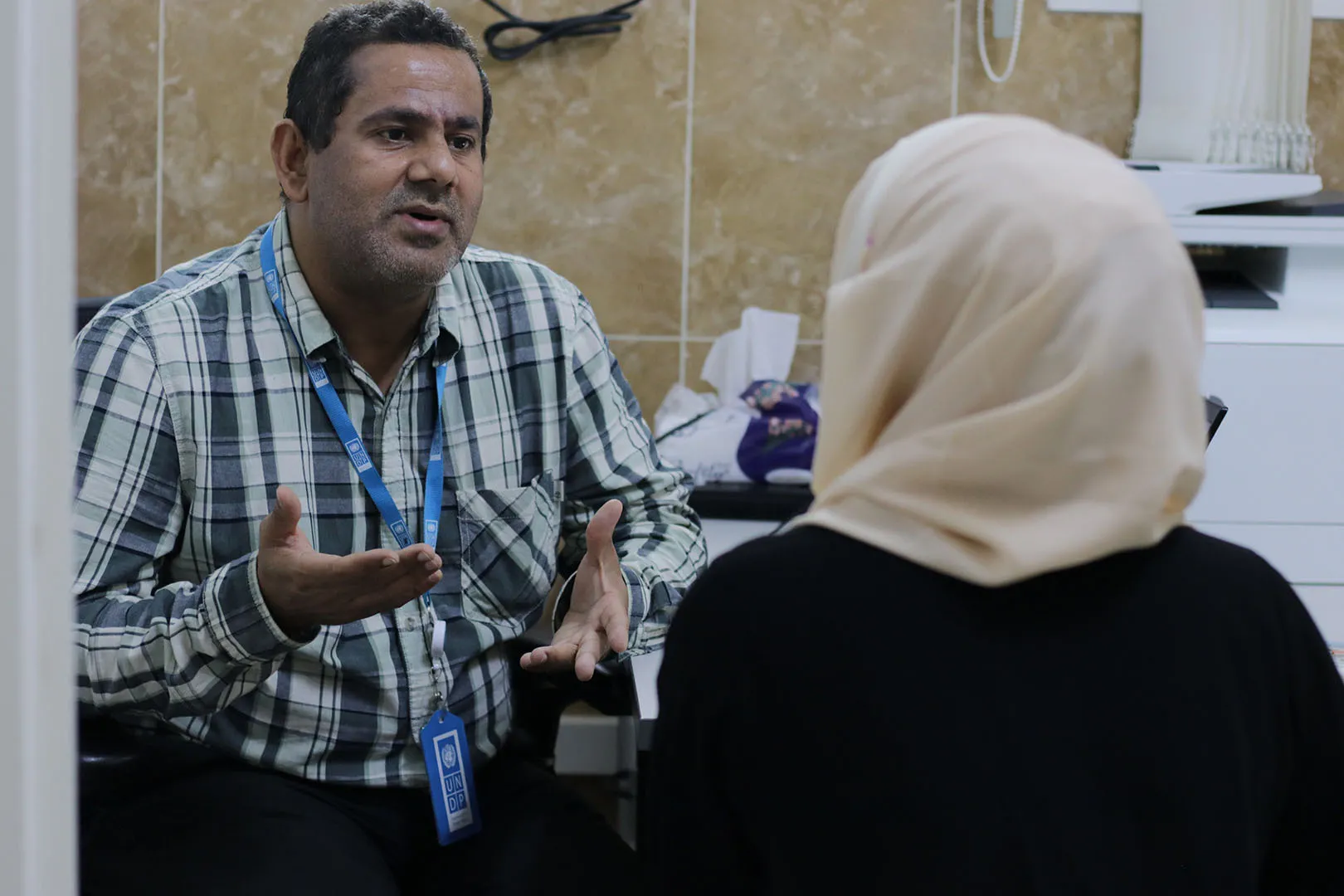

UN Volunteer Emergency Doctor Zainalabdeen Al-Gafri talking to a UNDP staff beneficiary at the UN clinic in Hodeida, Yemen.
© UNV, 2019
Address workplace concerns
Friction at work is natural, given the healthy mix of opinions, perspectives and values everyone brings. Intervene before worries and insecurities rub off. With our help, it’s up to you to supervise your volunteer successfully for a happy and productive experience. Watch out for these struggles and triumphs. Be ready to support your UN Volunteer to find a solution or intervene yourself if necessary.
Contact your HR focal person to familiarize yourself with host entity specific information and resources on informal and formal conflict resolution mechanisms.